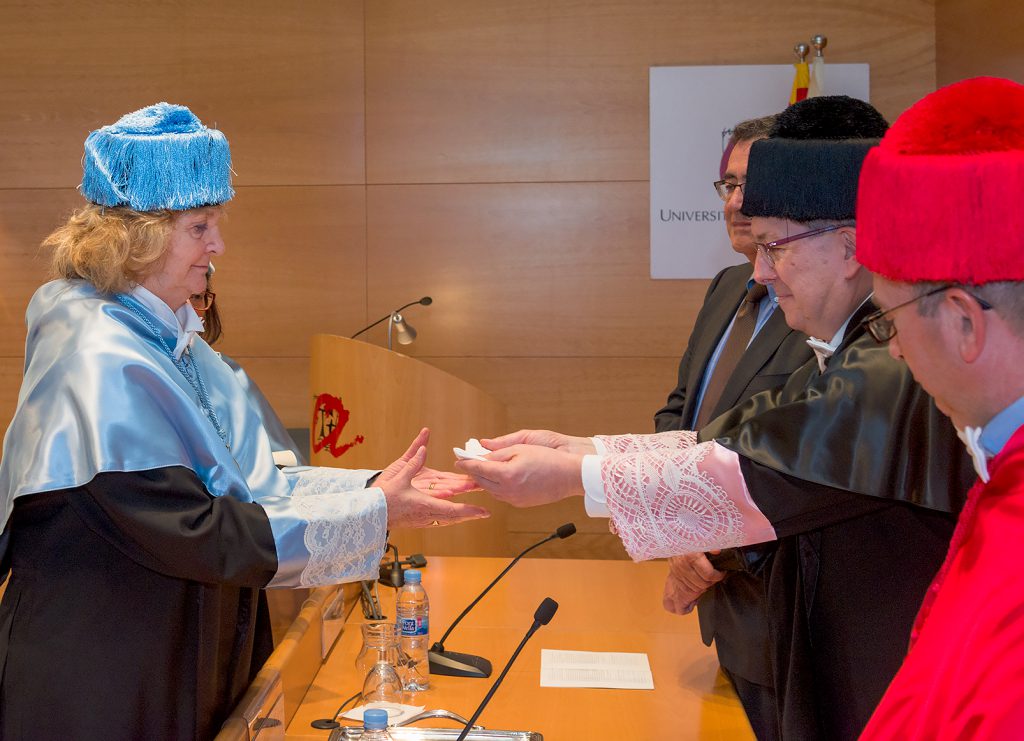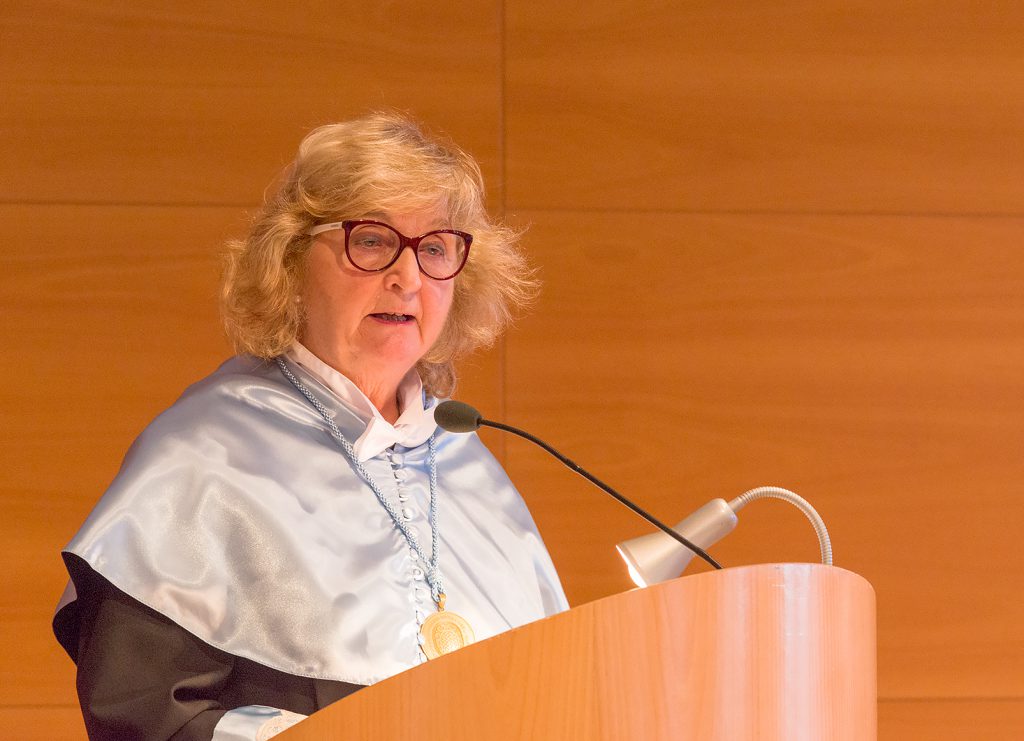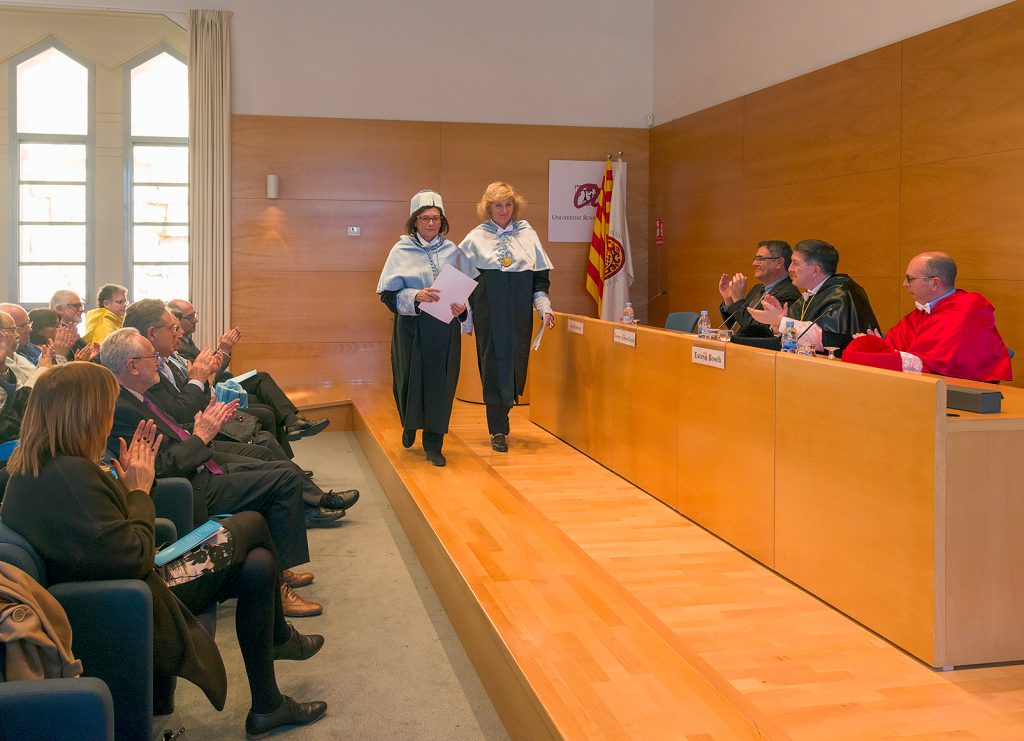09/03/2018
Mary Nash: “I am shocked by the paradox between the legal advances in women’s rights and the persistence of discriminatory practices”
The women's historian Mary Nash has been invested with an Honorary Doctorate by the Universitat Rovira i Virgili of Tarragona

The women's historian Mary Nash has been invested with an Honorary Doctorate by the Universitat Rovira i Virgili of Tarragona
“I am shocked by the paradox between the legal advances in women’s rights and the persistence of discriminatory practices, vexatious attitudes, harassment, sexual abuse, and gender violence,” said Mary Josephine Nash, Professor of the History of Women, during her investiture speech for an Honorary Doctorate awarded by the Universitat Rovira i Virgili on 9 March. “Detecting and analysing the historical functioning of inequalities is the work of academic historiography and feminism,” said the professor, “because it is an effective tool for identifying the different layers of the historical construction of persisting inequalities, such as the arguments that justify the continued gender pay gap and social, cultural and political divisions”.
The investiture ceremony in the University’s Auditorium was held after the strike and large demonstrations in Catalonia and Spain for women’s rights on 8 March. Montserrat Duch, professor of Contemporary History at the URV and Mary Nash’s patron, described 8 March as an “historic milestone for gender equality” during the investiture.
The new Honorary Professor, Emeritus Professor at the University of Barcelona (UB), where she studied and has pursued her academic career, recalled during her speech the strong opposition during the first decades of her career to her concept of the history of women and to its legitimacy as an academic discipline. Many distinguished historians, even the progressive ones, supported a historiographical canon that placed the masculine at the centre of the universe and relegated women to the margins of history.
Born in Ireland in 1947, Mary Nash studied at the universities of Cork, Turin and Barcelona and has been professor of Contemporary History at the UB since 1991. When she came to Catalonia in 1968, during the Franco regime, she became interested in the outstanding role women had played in the Second Republic and during the Spanish Civil War, and this became the topic of her thesis. Since then, the history of women has become the focus of her academic career. In the early 1970s, she created a subject on the history of women at the UB, which became the first institution in Spain to have such a subject.
As Montserrat Duch pointed out, her book Mujeres en el Mundo (Women in the World), is a global vision of contemporary women’s movements in the struggle for rights which “explores dynamics as diverse as collective struggles for citizenship, the right to vote, feminism, pacifism, sexual reform, anti-colonial resistance, women’s liberation, mobilisation against political dictatorships, feminism during the Spanish transition to democracy and the proposals of ethnic minorities and women in colonised countries”. For twenty years she has been director of the Multiculturalism and Gender research group of the UB and her publications include 259 articles and books. Mary Nash has been the main advocate for the introduction of women and gender studies at Spanish universities.
The rector of the URV, Josep Anton Ferré, stated in his welcome speech to the new Honorary Professor that the University is committed to gender equality and critical research. Her incorporation into the community is an honour for the URV and leads the way for the URV to become “what we want to be”. The Rector was accompanied by the President of the University Council, Joan Pedrerol, and the General Secretary of the URV, Esteve Bosch.
The investiture of Mary Nash, promoted by the Department of History and History of Art and by the Faculty of Arts of the URV, is part of the URV’s XI Setmana de la Igualtat (11th Equality Week).
The CRAI at the Campus Catalunya has put on display a series of Mary Nash’s works to mark the occasion of her investiture and raise awareness of her research. The display can be seen until 23 March at Catàleg de la URV, Catàleg Col·lectiu de les Universitats de Catalunya, Rebiun and the Dialnet summary database.
More news about: gender, honorary doctorate, Honoris Causa, women



